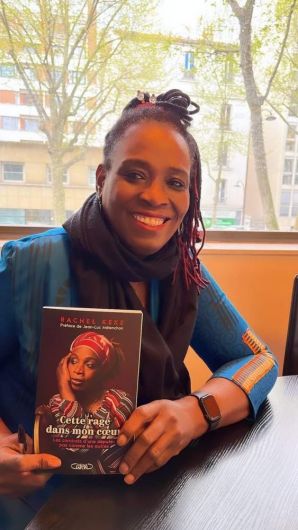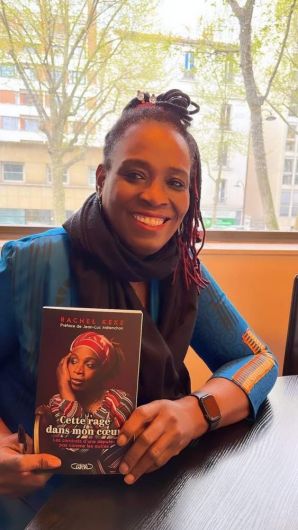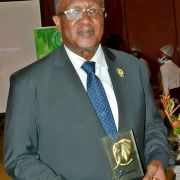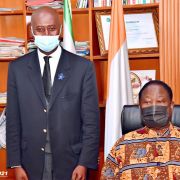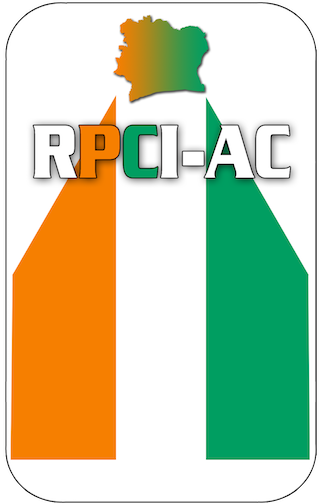"World Economy": "Brave new third world strategies for survival in the global” (Second part)
Par IvoireBusiness – About world economy.
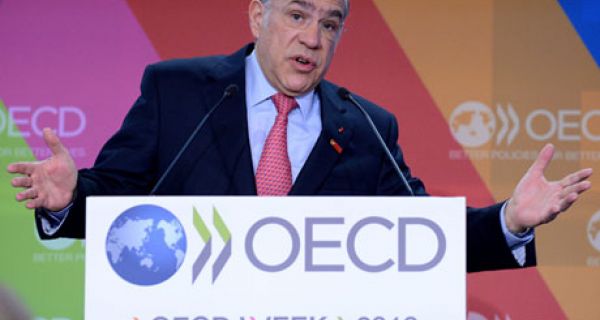
PHOTO: José Ángel Gurría, secretary general of the OECD, which has cut UK growth forecasts. Photograph: Caroline Blumberg/EPA.
Generally speaking the weakness of third world economies is grounded in the fact
that those economies are dependent on one or two commodities without a manufacturing
process and business plan ahead! Moreover, perhaps at least as damaging to the third world sovereignity as the banks, the transnationals, and the shift in comparative advantage to automation has been the working of one of the most vicious trends in the world market: Let's take a list of leading export as percentage of total exports for selected countries in Subsaharan AFRICA!
> 1-NIGERIA(TOTAL CRUDE PETROLEUM in percentage of exports yearly(94.6%)
> 2-IVORY COAST(cacao and coffee-percentage of exports(96.4%)
> 3-UGANDA(coffee-percentage of total exports(94.8%)
> 4-GUINEA-CONAKRY(ores and concentrates-percentage of exports(90.6%)
> 5-ZAMBIA(Copper-percentage of total exports(90%)
> 6-ANGOLA(crude petroleum-percentage in total exports(88.7%)
> 7-CONGO BRAZZAVILLE(crude petroleum in total exports(82.6%)
> 8-GABON(crude petroleum in total exports(69%)
> 9-LIBERIA(Iron ores in total exports(64.5%)
> 10-Niger(ores and concentrates intotal exports(73.8%)
Meanwhile, the deteriorating terms of trade of third world commodity exports, or the decline of real primary-commodity prices in terms of their capacity to purchase manafactured imports from the developed countries.
Ironically, commodity prices promised to be the key to greater sovereignty
and development in the mid seventies, when a natural resource scarcity was expected. "OPEC" provided, at that time, a scintillating example of how commodity
prices could be brought up to what was regarded as their true and just level. Thus third world nations producing "copper"(ZAMBIA), tin, bauxite(Guinea conakry and jamaica are the world largest exporter), mercury, tungsten, phosphate(TOGO,SENEGAL,TUNISIA), "coffee" and "cacao"(IVORY COAST world largest producer of "cacao" and one of the african largest exporter of "coffee"), banas, and even peanuts(FROM Senegal)tried to set up or strengthen cartels to raise or steady prices.
Commodities power turned out to be a mirage.BY the earlies eighties, international trade was littered with the carcasses of failed argreements and the prices of many commodities were down to their lowest level since the (1930s);and since then they have not substantially recovered.With many countries dependent on one or two commodities to gain foreign exchange, the drop in prices has meant a severely constrained ability to perform the triple tasks of importing industrial goods, paying for importing food now needed by starving or malnourished populations, and servicing the mounting debt.
Moreover, with prices of their products falling, many countries have been forced to export a greater volume of commodities, with the concomitant long-term damage to lands and environment caused by the surexploitation of resources.
As the most commodity-dependent region in the world, subsaharan AFRICA has probably been the hardest hit by the deteriorating terms of trade.
"Coffee" and "CACAO" for instance account for over (94%) of exports receipts
of the "IVORY COAST" when "oil-off shore" and "gas" are gradually taking higher ground since the 90s!In the same trend, "Coffee" accounts for over (90%) Of the export receipts of "UGANDA", and "NIGERIA" and "ANGOLA" derive a similar proportion of their export revenue from oil!
(...)Nowadays, the shortcomings of post-colonial African regimes still take into account lack of government capacity and democracy values, unity and manafactures goods.In addition to that sad reality, we can not help pointing out nepotism, rampant tribalism, and tyranny.
(YVES T BOUAZO)(the into, follow up, extra additions, conclusion are from the staff of "IVOIREBUSINESS"-"OFFICIAL SOURCES": from the book" brave new third world? STRATEGIES FOR SURVIVAL INTHE GLOBAL ECONOMY-FROM "WALDEN BELLO"
(institute for food and development policy-"SAN FRANCISCO"-"CALIFORNIA")


